North Korea's newest batch of future soldiers scrawny 11-year-olds with freshly shaved heads punch the air as they practice taekwondo on the grounds of the Mangyongdae Revolutionary School. Students and teachers here say they're studying harder these days to prepare for a fight.
Across the country, banners, slogans and artwork have been redrawn to focus on fighting "the imperialist Americans and their traitorous followers," a reference to South Korea. Slogans on improving North Korea's economy had dominated since 2009, but anti-American propaganda has re-emerged over the past year, particularly following U.S.-led censure of North Korea's decision to launch a long-range rocket and test a nuclear bomb.
At the military school, where students work on desktop computers without Internet access and practice their English with chants such as "The respected Marshal Kim Jong Un is our father," classwork is infused with conflict.
"Because of the present situation, I am trying to study harder, because I really think that's how I can get my revenge on the American imperialists: by getting top marks in class," one student, Jo Chung Hyok, told The Associated Press.
"It's my revolutionary duty," Jo said. "I'm working extra hard to get top marks in military subjects like tactics and shooting."
The uptick in anti-American sentiment comes on the heels of international condemnation and U.N. sanctions for North Korea's long-range rocket launch in December and its underground nuclear test in February, which Pyongyang accuses Washington and Seoul of instigating. Joint U.S.-South Korean military drills south of the border also have incensed Pyongyang.
The anti-American campaign also comes as North Korea prepares to mark the 60th anniversary in July of the close of the Korean War. The three-year conflict pitting North Korea and China against U.S.-led U.N. troops ended in a truce, not a peace treaty. The continued division of the Korean Peninsula, and the presence of 28,500 American troops in South Korea, has rankled North Korea's leadership.
For weeks, North Korea has threatened to attack the U.S. and South Korea for holding joint military drills and for supporting U.N. sanctions. Washington and Seoul say they've seen no evidence that Pyongyang is actually preparing for a major conflict, though South Korean defense officials say the North appears prepared to test-fire a medium-range missile capable of reaching the American territory of Guam.
Both sides have said that in order for dialogue, the other side needs to act.
The U.S. says Pyongyang must bring down tensions and honor previous disarmament agreements before talks can begin.
North Korea laid out a long list of preconditions for resuming talks Thursday, including the lifting of U.N. sanctions, the end of U.S.-South Korea military drills, the withdrawal of U.S. nuclear weapons assets from the region a halt to criticism of North Korea. On Friday, it reiterated a warning to South Korea to apologize for offending its leadership before any talk of dialogue to defuse tensions.
South Korea's Foreign Ministry called North Korea's demands illogical, but in Washington, U.S. Secretary of State John Kerry put a more positive spin on Pyongyang's response.
"It's the first word of negotiation or thought of that we have heard from them since all of this has begun," he said Thursday before the Senate Committee on Foreign Relations. "I'm prepared to look at that as at least a beginning, not acceptable obviously, and we have to go further."
The U.S. remains open to "authentic and credible negotiations," White House spokesman Josh Earnest told reporters aboard Air Force One. But he said the U.S. has not seen any commitment from North Koreans that they are willing to end their nuclear program.
Inside the sprawling compound of the Mangyongdae Revolutionary School, students are made aware of their government's latest invectives against its foes, in addition to usual subjects of study: biology, history, foreign languages.
"At the moment, the situation on the Korean Peninsula is tense, and America is being bad to us," said Lt. Col. Kim Hak Bin, an administrator at the military academy. "But you can see that the students here look just as bright as usual, and life and classes are carrying on the same as before.
"Our students are ready to go to the front lines whenever a war breaks out, and they are now studying harder than usual," he said Thursday.
The school, located near the birthplace of North Korea's first leader, Kim Il Sung, was created in 1947 to house, feed and educate the sons and daughters of soldiers killed while fighting the Japanese who occupied Korea from 1910 to 1945.
Today, the girls are housed in a separate academy named after Kim Il Sung's mother, the Kang Pan Sok Revolutionary School in the western port city of Nampho.
Late leader Kim Jong Il attended the academy for eight months during the Korean War, school records show. His son, current leader Kim Jong Un, did not. His military education came from studying at the Kim Il Sung Military University next door.
During his 17-year rule, Kim Jong Il elevated the importance of the army and poured much of the nation's meager resources into defense. Military life became an integral part of the North Korean identity.
The students here are being groomed to serve as the "core" of the Korean People's Army, said biology teacher Ri Kyong Hui.
A visit to the military academy offered a peek into how young North Koreans learn to march and chant with such startling precision as displayed in parades held on major anniversaries.
A group of students, dressed in uniform, struggled to get their march just right as an instructor adjusted their arms. One boy grimaced in frustration. Inside, other students rehearsed for a performance, using fake rifles as props.
But boys will be boys, and the 11-year-olds who just joined the academy at the start of the month were hardly examples of discipline.
Suited up in light green and blue tracksuits, they squirmed, giggled and made faces as they practiced taekwondo.



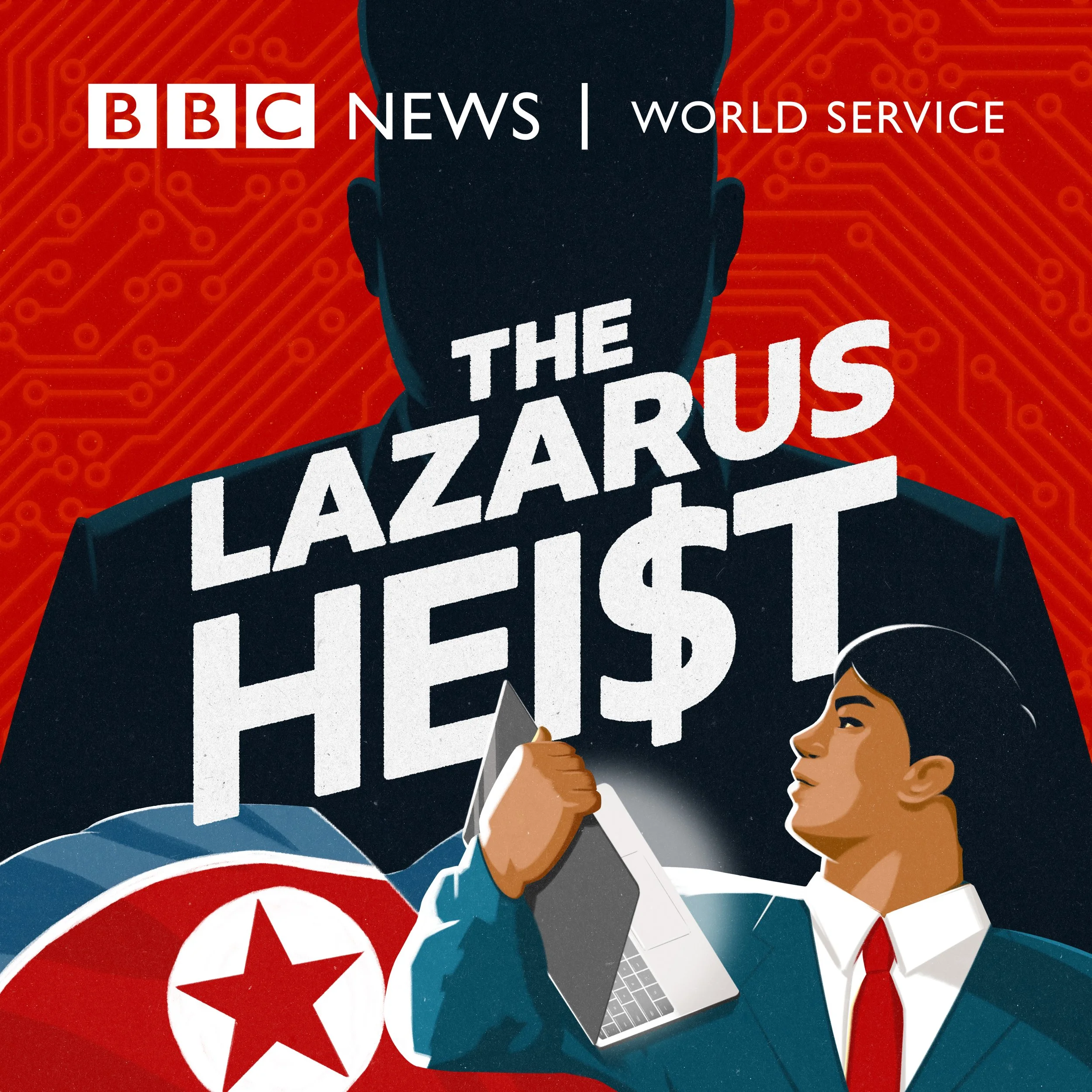

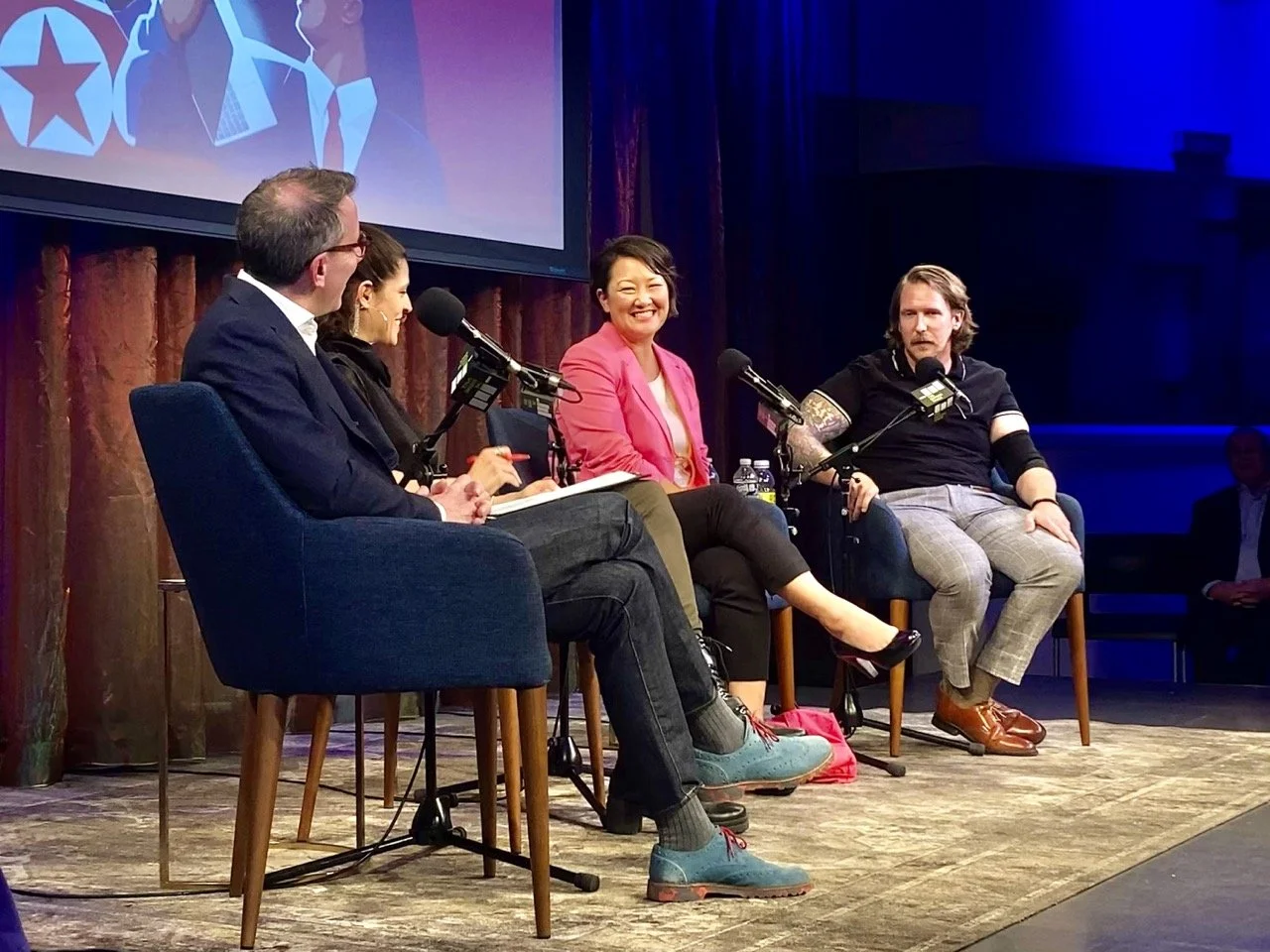


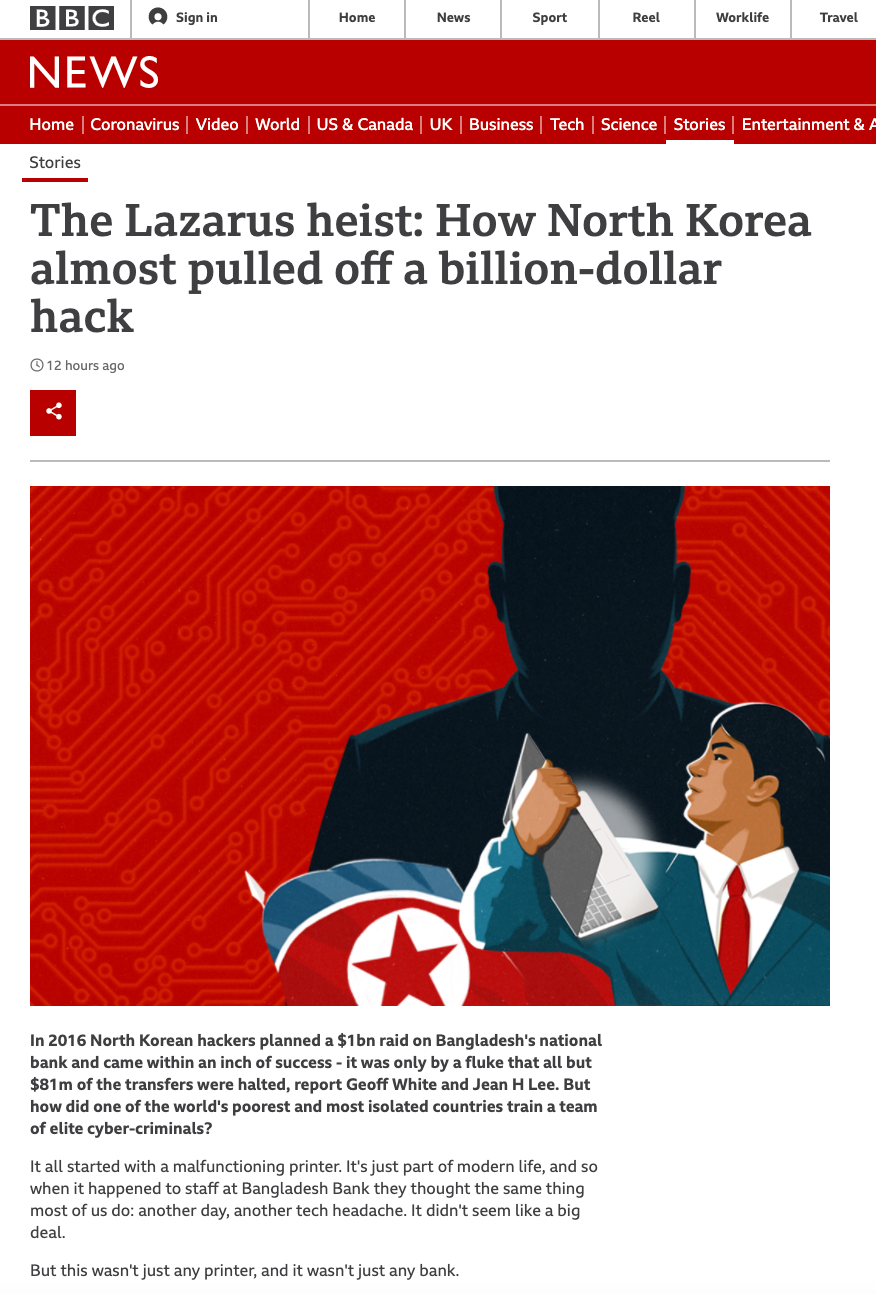













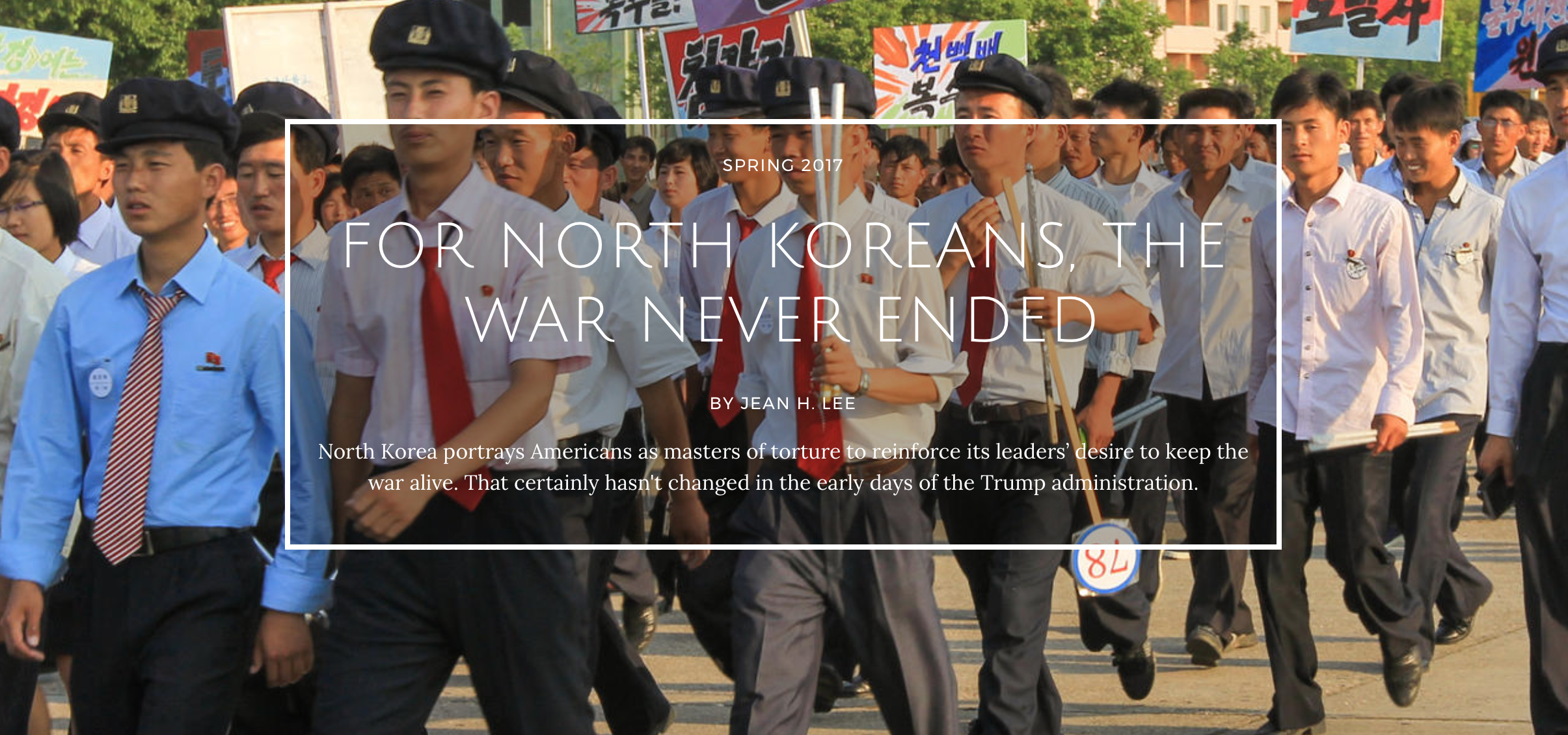


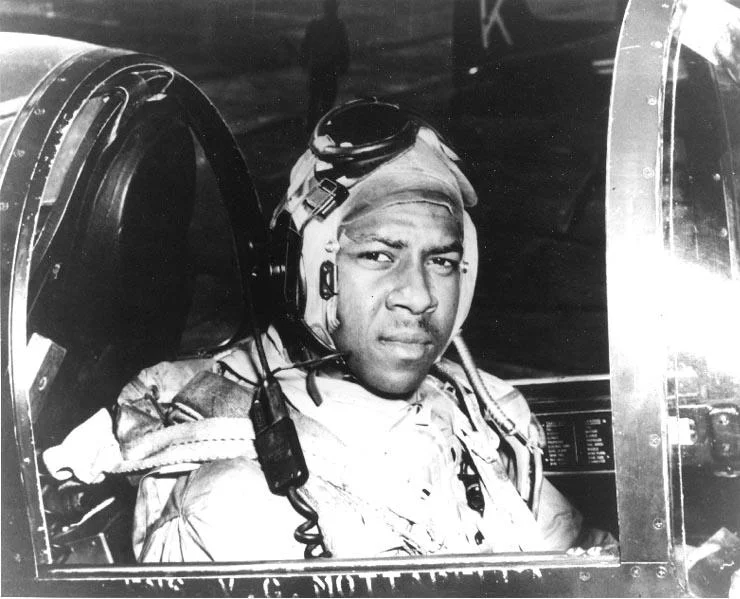
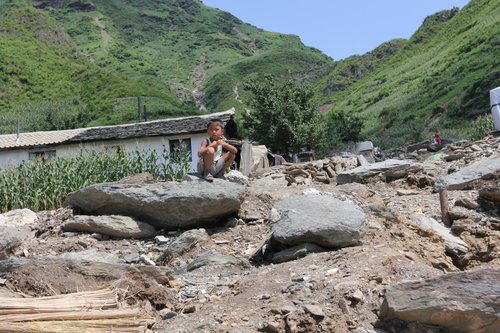



Download all episodes of The Lazarus Heist, watch Lazarus Heist animations, read our feature story about the hackers and view visualizations of the podcast episodes on Lazarus Heist homepage on the BBC World Service website!